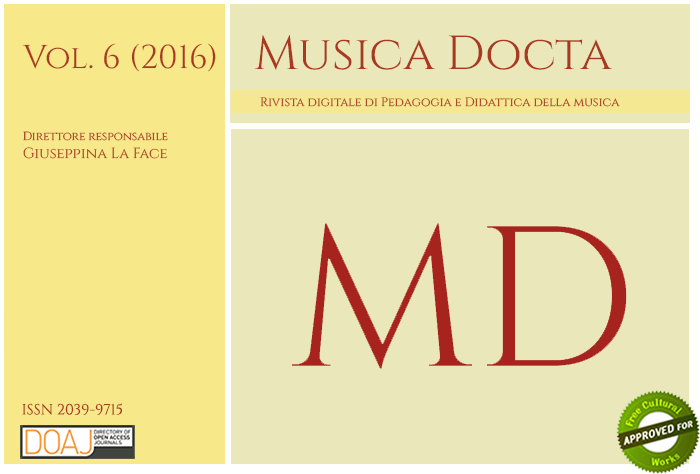Sfida alle convenzioni “gastronomiche” del teatro d’opera: “Aufstieg und Fall der Stadt Mahagonny” di Kurt Weill e Bertolt Brecht
DOI:
https://doi.org/10.6092/issn.2039-9715/6584Keywords:
Epic musical theatre, Kurt Weill, Bertolt Brecht, Estrangement, IntermedialityAbstract
An unconventional work like Aufstieg und Fall der Stadt Mahagonny, written by Weill and Brecht between 1927 and 1930, provides an opportunity to address, through a multi-disciplinary didactic approach, a crucial moment in the evolution of opera theatre in the German cultural area in the years immediately following WWI. In the Germany of those years, operatic and theatrical institutions had been undermined both by the impact of the new media, above all by silent cinema, and by the disruptive social pressure of urban mass culture during the Weimar Republic. In this context, the ‘epic’ model of musical dramaturgy developed by Brecht and Weill in Mahagonny appears as an attempt to renew, or possibly reject altogether, the 19th-century work by using its very means.Downloads
Published
2016-12-30
How to Cite
Ficarella, A. (2016). Sfida alle convenzioni “gastronomiche” del teatro d’opera: “Aufstieg und Fall der Stadt Mahagonny” di Kurt Weill e Bertolt Brecht. Musica Docta, 6(1), 157–171. https://doi.org/10.6092/issn.2039-9715/6584
Issue
Section
Educational Approaches
License
Copyright (c) 2016 Anna Ficarella
The copyrights of all the texts on this journal belong to the respective authors without restrictions.
This journal is licensed under a Creative Commons Attribution Share-Alike 4.0 International License (full legal code).
See also our Open Access Policy.
Metadata
All the metadata of the published material is released in the public domain and may be used by anyone free of charge. This includes references.
Metadata — including references — may be re-used in any medium without prior permission for both not-for-profit and for-profit purposes. We kindly ask users to provide a link to the original metadata record.






